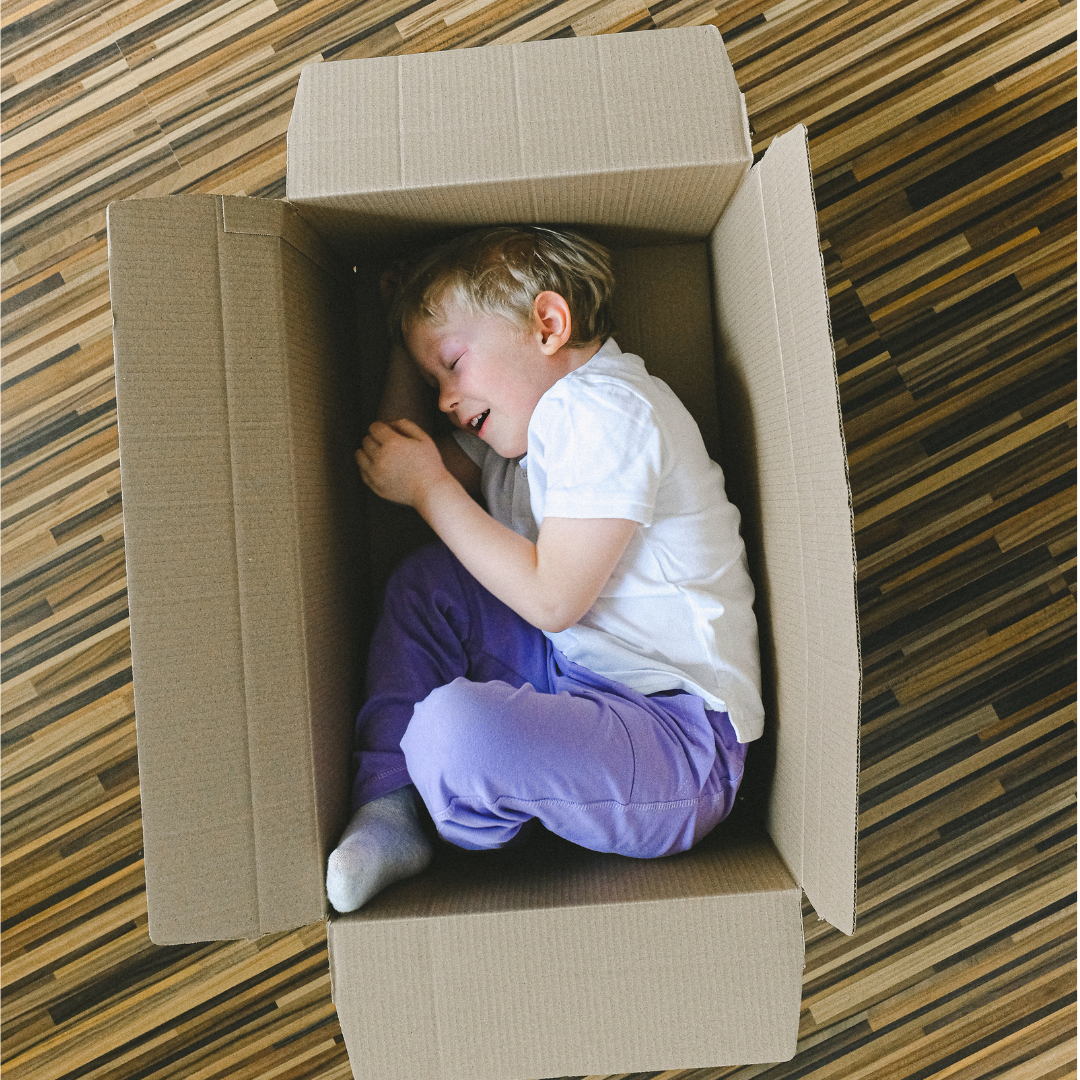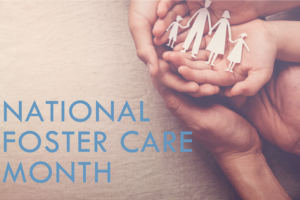Foster Care Month
Did you know that May is Foster Care Month? This is a time to recognize the thousands of children and young people in foster care who need our  support and attention. According to the Children's Bureau, there are currently over 400,000 children in foster care in the United States. Many of these children have experienced abuse, neglect, or other traumatic events that have led to their placement in foster care.
support and attention. According to the Children's Bureau, there are currently over 400,000 children in foster care in the United States. Many of these children have experienced abuse, neglect, or other traumatic events that have led to their placement in foster care.
Living in foster care can be a difficult and traumatic experience for many children and young people. Foster care is intended to provide a safe and supportive environment for children who are unable to live with their birth families. However, the instability and uncertainty of the foster care system can have a significant impact on the mental health of those who experience it.
The following are some of the mental health effects of living in foster care:
1 - Anxiety and Depression: Children and young people in foster care often experience feelings of anxiety and depression as a result of the trauma they have experienced. They may feel overwhelmed by the instability of their living situation, the loss of their birth family, and the uncertainty of their future. These feelings can lead to a sense of hopelessness and helplessness, making it difficult for them to engage in daily activities, maintain relationships, and focus on their education.
2 - PTSD: Post-traumatic stress disorder (PTSD) is a common mental health issue that can affect children and young people in foster care. Children who have experienced abuse, neglect, or other traumatic events may develop PTSD symptoms, such as flashbacks, nightmares, and hyper-vigilance. These symptoms can make it difficult for them to trust others, engage in daily activities, and form healthy relationships.
3 - Low Self-Esteem: Being removed from their birth families and placed in foster care can have a significant impact on a child's self-esteem. They may feel that they are unwanted or unloved, which can lead to feelings of worthlessness and low self-worth. This can make it challenging for them to form healthy relationships, engage in social activities, and pursue their goals.
4 - Trust Issues: Many children in foster care have experienced broken trust with their birth families, and this can lead to difficulty in trusting others.  Trust is an essential component of healthy relationships, and without it, children may struggle to form connections with others. This can lead to isolation, loneliness, and feelings of rejection.
Trust is an essential component of healthy relationships, and without it, children may struggle to form connections with others. This can lead to isolation, loneliness, and feelings of rejection.
5 - Behavioral Issues: Children in foster care may exhibit behavioral issues such as aggression, defiance, and self-harm. These behaviors may be a result of their trauma and difficulties in adjusting to new environments and relationships. These behaviors can be challenging for caregivers, teachers, and other adults to manage, and can lead to further feelings of rejection and isolation for the child.
If you or someone you know is experiencing these mental health effects due to living in foster care, it is essential to seek professional help. A brain health coach can be an excellent resource for those struggling with mental health issues related to living in foster care. A brain health coach can provide support and guidance to help individuals cope with their feelings and develop strategies for improving their mental health and well-being.
A brain health coach can help children and young people in foster care by:
- Providing a safe and supportive space to express their feelings and emotions.
- Developing coping strategies to manage feelings of anxiety, depression, and trauma.
- Helping them build self-esteem and confidence.
- Assisting them in developing healthy relationships with others
- Teaching them skills to manage their behavior and emotions.
In conclusion, living in foster care can have a significant impact on mental health and well-being. However, with the right support and resources, children and young people can overcome these challenges and lead healthy and fulfilling lives.
children and young people can overcome these challenges and lead healthy and fulfilling lives.
If you or someone you know is experiencing mental health issues related to living in foster care, it is essential to seek professional help. A brain health coach can provide valuable support and guidance to help individuals cope with their feelings and develop strategies for improving their mental health and well-being.
In addition, I would like to invite you to my upcoming class. This class is designed to help preteens and teens develop leadership and communication skills, as well as improve their brain health. By participating in this class, your child can gain valuable skills that will help them succeed in school, work, and life.
To learn more about this class and register your child, please visit https://www.eventbrite.com/e/your-child-is-a-leader-increase-communication-skills-and-brain-health-tickets-477578659627 Together, we can help children and young people in foster care and beyond develop the skills and support they need to thrive.
Photo credits: @Pexels: Anna Shvets @sh.vetts
 Neuroencoding Specialist at NeuroEncoding Specialist (Founding Member), BRAIN HEALTH COACH at Amen Clinics and Self-Employed at bambooshoot
Neuroencoding Specialist at NeuroEncoding Specialist (Founding Member), BRAIN HEALTH COACH at Amen Clinics and Self-Employed at bambooshoot
Past: Catholic Charities Hawaii and Girl Scouts of Hawai'i
Studied Public administration at the University of Hawaii at Manoa







